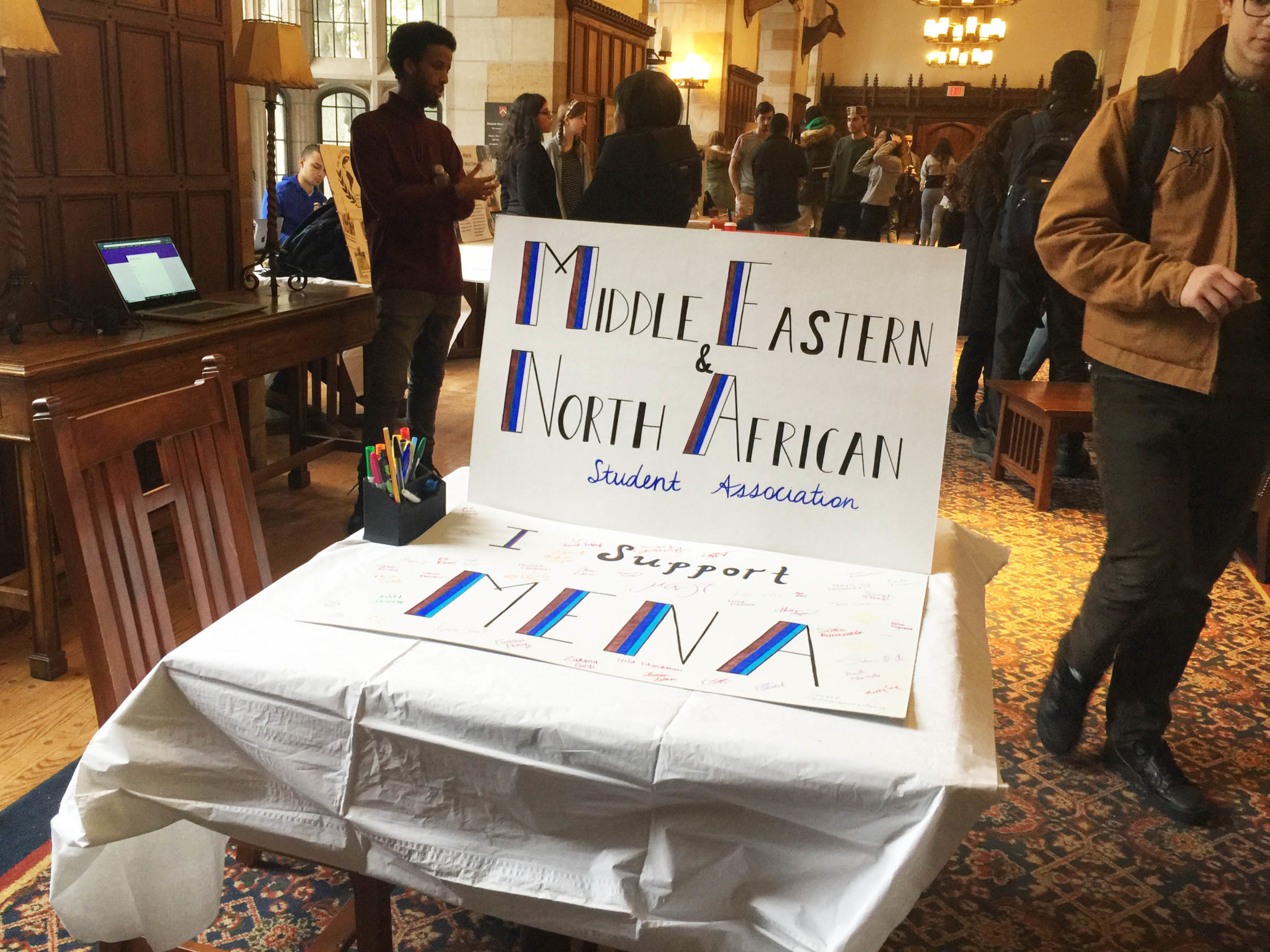
Asha Prihar
As Yalies continue to push for greater Middle Eastern and North African representation on campus, the student organization advocating for the creation of a MENA Cultural Center held a launch event Thursday.
While there are only four institutionalized cultural centers at Yale, the Middle Eastern and North African Students Association has advocated for MENA to become the fifth cultural center for the past two years. Spearheaded by members of the Arab Students Association and other cultural groups, the association is still in the midst of advocating for full-fledged cultural center status from the University. With support from the Yale College Council, the club plans to proceed in the meantime with programming similar to that of existing cultural centers.
Thursday’s MENA “Welcome Mixer” was intended to connect students and faculty who identify as Middle Eastern, as North African or who are interested in the region. The event was the club’s second official event since becoming a formally registered student organization last semester.
“[Last year], I started thinking about why a MENA house did not exist on campus to act as a [homey] umbrella for various students on campus who did not identify with the existing four institutionalized cultural centers,” MENA Co-Presidents Shady Qubaty ’20 and Yasmin Alamdeen ’21 said in a joint email to the News on Monday. “After all, breaking up the MENA region into an ‘Asian’ identifying region in the [Asian-American Cultural Center] and an ‘African’ identifying region in the [Afro-American] House disregards the social and cultural realities of Middle Eastern and North African identifying persons.”
Approximately 40 people attended the welcome mixer, including undergraduate Yale students, a student from Gateway Community College in New Haven and Jackson Institute World Fellows. They served a wide array of food, including treats from the MENA region such as baklava and grape leaves. The desserts came from Havenly, a startup bakery created by Yale students that employs refugee women in New Haven.
Qubaty and Alamdeen explained that the cultural house project first started to gain attention at the YCC Elections Debate in 2018, where Qubaty introduced the idea of a fifth cultural center to each of the candidates. They added that each candidate then incorporated the initiative into their platform, starting the YCC’s involvement in advocating for the MENA club.
According Qubaty and Alamdeen’s email, three questions related to the MENA club received a “nearly [unanimously]” positive reaction on the 2018-2019 YCC survey, motivating Qutaby and Alamdeen’s team to move forward with the project. Since then, they explained, the club has secured a base room at 305 Crown St., which is also next to the AACC and La Casa Cultural.
Qubaty and Alamdeen also emphasized that the momentum gained since receiving the official endorsement of the YCC signals that a MENA cultural center is “no longer just the demand of [their] association, but one concerning Yale’s official undergraduate student government.”
They added that this “huge step forward” has provided a YCC-based task force that has helped facilitate contact and advocacy on the prospective cultural center’s behalf.
“In addition, we have managed to garner the support of countless faculty members and are now in the process of forming an advisory board for the club consisting of Yale Alumni who are very passionate about this proposal,” the email said. “In that respect, we will have students, faculty and alumni all heading in the same direction.”
YCC President Kahlil Greene ’21 said that while MENA is “still in the process of advocacy that started last year,” the first step in establishing an official cultural center has already been achieved.
According to the email, Qubaty and Alamdeen characterized the process of achieving formal recognition as “very sticky” and one that “involves a lot of bureaucracy that is not just related to funding.”
They noted that the establishment of the other cultural houses took decades and that Yale administration has to be convinced that demand for a new cultural center is “real.” The email also explained that from there, the Administration will have to form a committee devoted to discussing its need and its feasibility “which takes time.”
Still, Qubaty and Alamdeen emphasized that formal recognition is “definitely possible” and that they “will not stop pushing” for a MENA house to be established.
Zakaria Gedi ’22, communications chair for the MENA Students Association, told the News that there is a large group of students who could be served by a MENA house and that this need applies “especially for a first-year who is trying to find their identity and make friends of similar heritage.”
Onur Burcak Belli, a Turkey-based journalist and Jackson Institute World Fellow at Yale, attended Thursday’s event and told the News that she was “really disappointed when [she] learned you don’t have a particular place to represent an area that has a lot to do with U.S. politics.”
She is proud of the students who have pushed for the establishment of the MENA Cultural Center and hopes to send a message that people living in the MENA region “are much more than victims.”
As the MENA Students Association does not currently have their own space, the Welcome Mixer took place on the first floor of the Asian-American Cultural Center.
Alayna Lee | alayna.lee@yale.edu
Ella Goldblum | ella.goldblum@yale.edu







